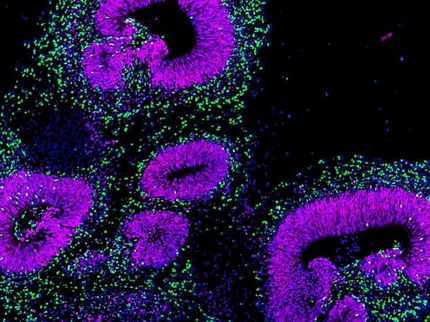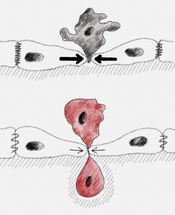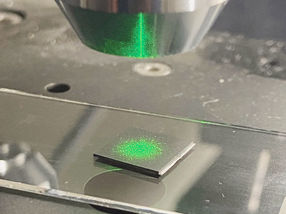Spanish researchers sequence non-infiltrating bladder cancer exome
Spanish researchers sequence non-infiltrating bladder cancer exome The study's authors identify new genetic pathways and new genes involved in bladder cancer; The genetic signature of these patients is a first step towards understanding the biology of this illness and improving patient management
Researchers at the Spanish National Cancer Research Centre (CNIO), coordinated by Francisco X. Real, head of the Epithelial Carcinogenesis Group and Nuria Malats, head of the Genetic & Molecular Epidemiology Group, have carried out the first exome sequencing for non-infiltrating bladder cancer, the most frequent type of bladder cancer and the one with the highest risk of recurrence.
The results reveal new genetic pathways involved in the disease, such as cellular division and DNA repair, as well as new genes - not previously described - that might be crucial for understanding its origin and evolution.
"We know very little about the biology of bladder cancer, which would be useful for classifying patients, predicting relapses and even preventing the illness", says Cristina Balbás, a predoctoral researcher in Real's laboratory who is the lead author of the study.
The work consisted of analysing the exome from 17 patients diagnosed with bladder cancer and subsequently validating the data via the study of a specific group of genes in 60 additional patients.
"We found up to 9 altered genes that hadn't been described before in this type of tumour, and of these we found that STAG2 was inactive in almost 40% of the least aggressive tumours", says Real.
The researcher adds that: "Some of these genes are involved in previously undescribed genetic pathways in bladder cancer, such as cell division and DNA repair; also, we confirmed and extended other genetic pathways that had previously been described in this cancer type, such as chromatin remodelling".
An unknown agent in bladder cancer
The STAG2 gene has been associated with cancer just over 2 years ago, although "little is known about it, and nothing about its relationship to bladder cancer", says Balbás. Previous studies suggest it participates in chromosome separation during cell division (chromosomes contain the genetic material), which is where it might be related to cancer, although it has also been associated with maintenance of DNA´s 3D structure or in gene regulation.
Contrary to what might be expected, the article reveals that tumours with an alteration in this gene frequently lack changes in the number of chromosomes, which indicates, according to Real, that "this gene participates in bladder cancer via different mechanisms than chromosome separation".
The authors have also found, by analysising tumour tissue from more than 670 patients, that alterations in STAG2 are associated, above all, with tumours from patients with a better prognosis.
Most read news
Organizations
Other news from the department science

Get the life science industry in your inbox
By submitting this form you agree that LUMITOS AG will send you the newsletter(s) selected above by email. Your data will not be passed on to third parties. Your data will be stored and processed in accordance with our data protection regulations. LUMITOS may contact you by email for the purpose of advertising or market and opinion surveys. You can revoke your consent at any time without giving reasons to LUMITOS AG, Ernst-Augustin-Str. 2, 12489 Berlin, Germany or by e-mail at revoke@lumitos.com with effect for the future. In addition, each email contains a link to unsubscribe from the corresponding newsletter.






















































